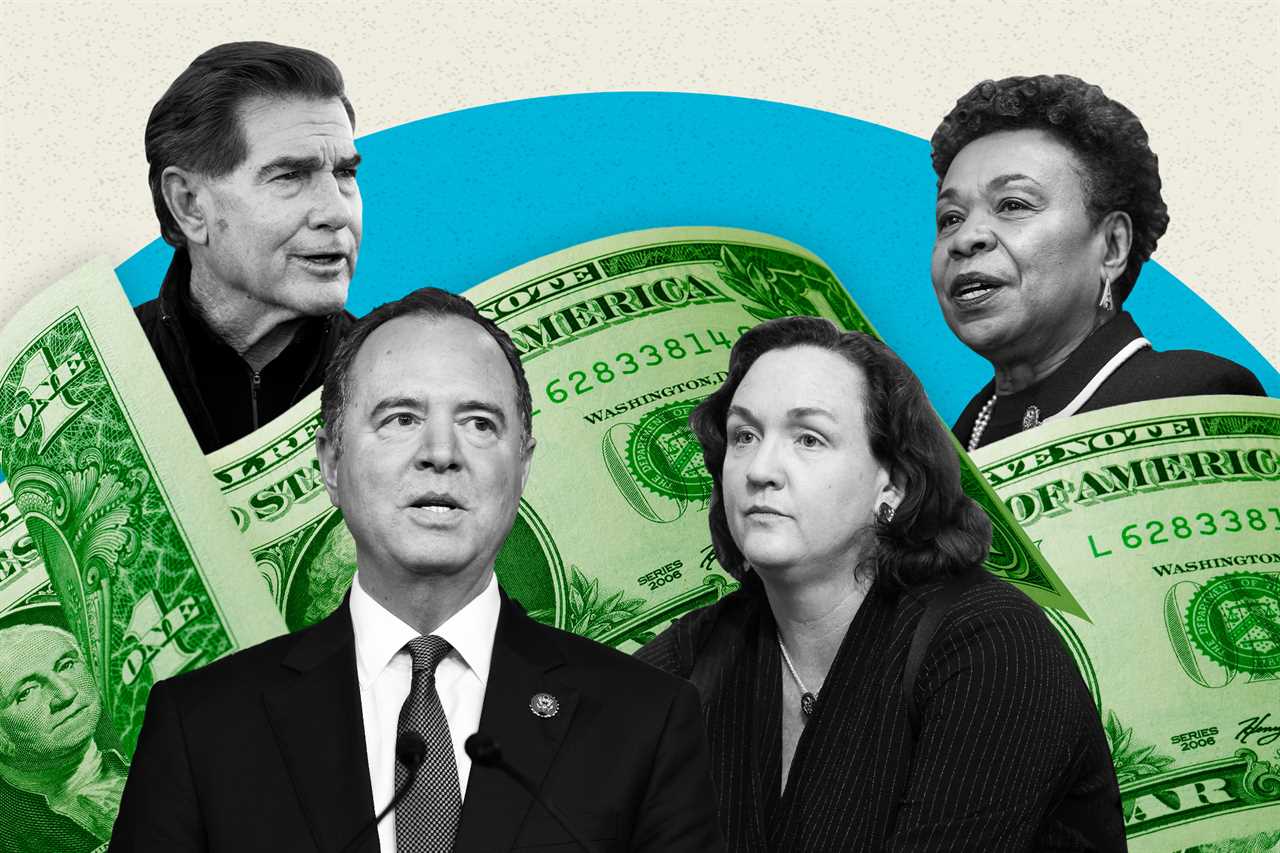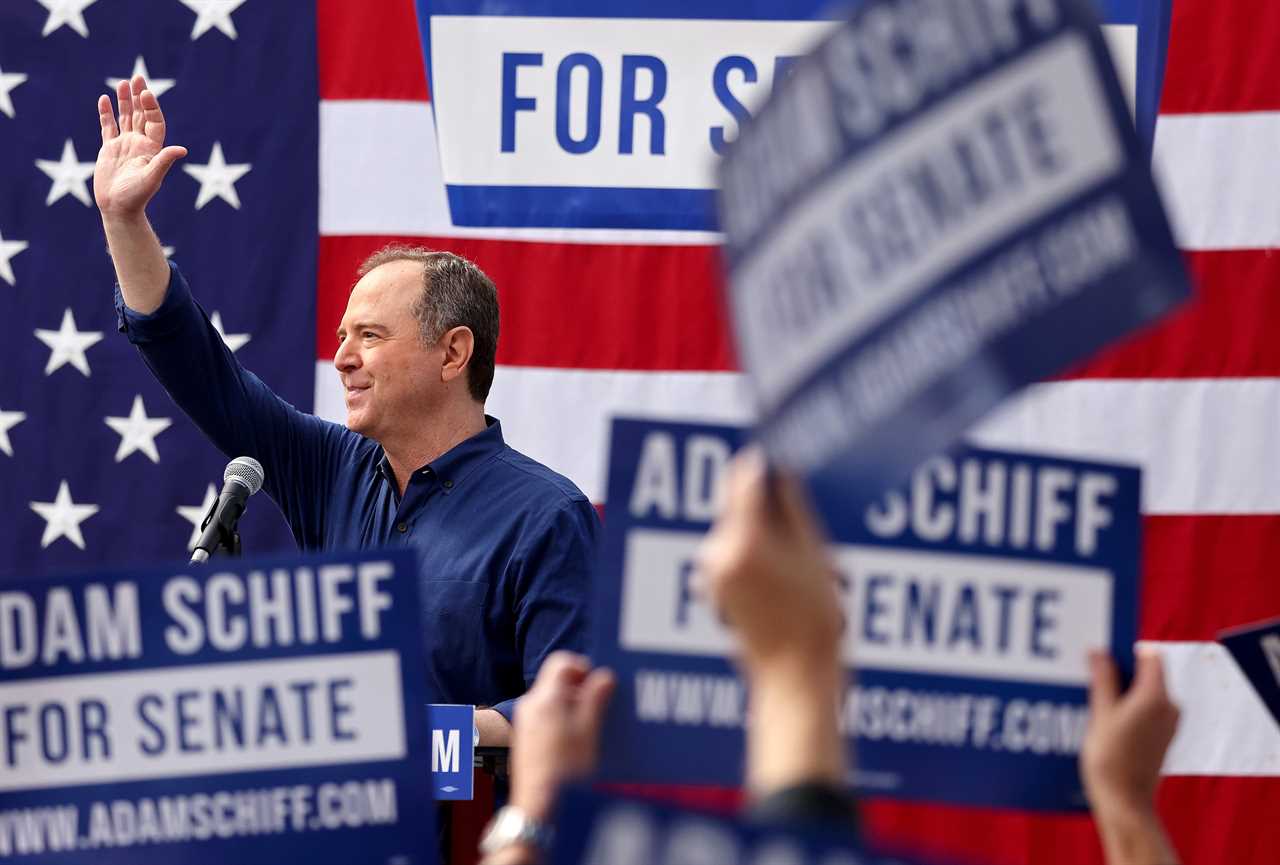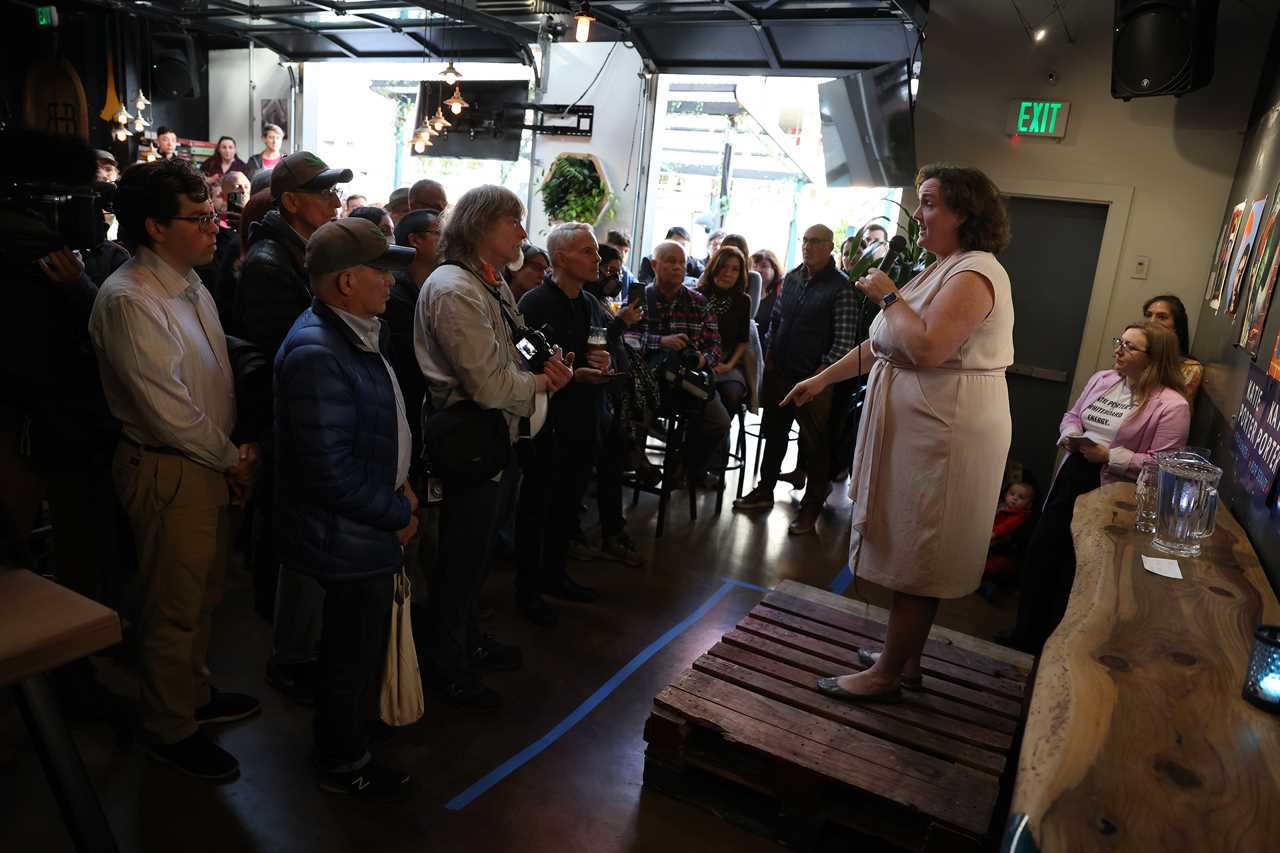
California's Rep. Adam Schiff’s $35 million war chest for the late Sen. Dianne Feinstein’s seat is more than twice as large as any other Senate candidate in the nation.
The state plays no role in which party will lead the Senate next year. And yet, some Democratic House campaigns in California have already seen the Senate race start to siphon money and attention away from swing-seats.
Money like that could help flip multiple House seats and power Democrats’ attempt to regain control of Congress. California alone has seven GOP House incumbents that Democrats have targeted The campaign accounts of Schiff and his closest Democratic opponent, fellow Rep. Katie Porter, could transform those contests.
Instead, Schiff and Porter are engaged in an expensive, bruising primary. The tens of millions they’ve raised have largely been spent against each other, not Republicans.
"You have really some high-power people running for this seat and an enormous amount of resources going toward them that could go toward other Democrats. And that's unfortunate," said Rep. Juan Vargas (D-Calif.), who has endorsed Schiff.
Elsewhere, Senate Democratic incumbents in states like Montana, Ohio and Pennsylvania need every dollar they can get to fend off well-resourced Republican challengers. (Though Schiff himself has helped Senate and House campaigns raise money with his prodigious email list.)
The agony of having two of the best fundraisers in the House battle each other has left some in the party hoping that a Republican nabs the second spot in the top-two primary on March 5. Polling has shown Schiff in a commanding lead with Porter and Republican Steve Garvey battling for second. Another prominent House Democrat, Rep. Barbara Lee, trails behind in fourth place. A second-place Garvey win would effectively end the fight for the seat in the deep-blue state instead of letting it drag out until November.
"You won't hear that giant vacuuming sound with all the money going into that race," Vargas said of that scenario. "Instead the money will go to other candidates, Democratic candidates."
California elections are pricey, and the Senate race is sucking up tons of dough
Porter and Schiff are both masterful fundraisers, which makes the internecine battle harder for some Democrats to stomach.
Schiff built a loyal cable news following during the Trump administration by leading the House’s prosecution of the then-president in his first impeachment trial. He endeared himself to millions of MSNBC viewers, who rewarded him with donations. His cash pile is so large that he has invested it and put the interest into his political accounts. His campaign announced raising $6.3 million in the final quarter of 2023, a sum that included $372,000 in interest payments.

Porter has raised at least $3 million in each of the past seven quarters. Her viral committee hearing moments and cable news hits helped her amass a small-dollar fundraising army. She has not yet announced her fourth-quarter numbers — she has until the end of the month — but had $11.9 million in her account at the end of last September, the most recent data available.
Lee ended last September with $1.3 million in the bank.
“You've got to get to public financing of campaigns,” said Lee, who has long denounced the system as rigged. If not, “there's never gonna be a level playing field for anyone.”
California’s expansive geography and big population makes running a statewide campaign very costly. Candidates often need millions to air just one ad introducing themselves to the 22 million registered voters. The Los Angeles media market is the nation’s second most expensive.
So far Schiff has spent more than $15.9 million on TV and digital ads in the Senate race, according to AdImpact, a media tracking firm. A super PAC supporting Lee has dropped over $1 million. Porter has spent just over $3 million.
"Schiff spent decades stockpiling corporate PACs’ checks from Big Oil, payday lenders and pharmaceutical companies for this Senate campaign. Katie, on the other hand, spent more than $20 million over three election cycles winning and then defending a frontline House seat," said Nathan Click, an advisor to Porter.
And there are still some six weeks to go until March 5.
California could help tip control of the House
It’s unclear how much of Schiff's $35 million he will use before the primary. Democratic colleagues hope he’ll have a lot of extra cash he could deploy toward other races if a Republican advances to the general with him.
"He should turn into Santa Claus and help as many Democratic candidates as possible to help us get the seats we need in California to take the House," said Rep. Sydney Kamlager-Dove (D-Calif.).
The state will be crucial to Democrats' hopes of winning back the House, where Republicans have a miniscule majority. National Democrats are targeting GOP Reps. Mike Garcia, Michelle Steel, Young Kim, Kevin Kiley, Ken Calvert, David Valadao and John Duarte.
Schiff is known as a team player in Democratic fundraising circles — even as a Senate candidate. He has raised more than $400,000 for Democratic candidates and organizations since he launched his campaign on January 26, 2023, according to figures tallied by his campaign. That includes $125,000 for Eugene Vindman, who is running for an open House seat in Virginia and sums for embattled Senate Democrats such as Sen. Jon Tester (D-Mont.) and Sherrod Brown (D-Ohio). He has also raised for California Democratic congressional candidates, including George Whitesides and Rudy Salas, who are running against Garcia and Valadao, respectively.
But some down-ballot Democrats are struggling to keep pace with GOP incumbents’ large cash advantages. And Porter's decision not to run for reelection leaves open a swing districtthat she won narrowly in 2022. They also have to defend possibly competitive turf in greater San Diego and the Central Valley.

A few Democratic candidates have posted massive fundraising totals. In the Inland Empire, Calvert was outraised in the third-quarter of last year by opponent Will Rollins, a former federal prosecutor. And north of Los Angeles, Garcia ended September with less cash-on-hand than his opponent.
But most Democrats have fallen behind. And strategists with some Democratic campaigns, granted anonymity to speak candidly, said the Senate race has sucked up all the oxygen and made it more difficult to fundraise.
One person working for a Democrat in a swing seat said multiple donors have declined to host fundraisers for that campaign because they had already recently held events for Schiff's bid. Such fundraisers can bring in tens of thousands of dollars in one night.
"Every dollar matters, and the fact that so much of it is being spent on an intra-party fight is disappointing," said the operative, who was granted anonymity to speak frankly about the dynamic. "It's frustrating when so many of the donors are sidelined or distracted."
Some Democrats are starting to root for a Republican win in the primary
For Democrats eager to win back the House and keep the Senate, it’s tough to see so much money flowing into a race that won’t affect the balance of power in Congress.
"It's the most inconsequential US Senate race in America," said Michael Trujillo, a longtime California Democratic strategist.
The focus on the Senate race has become so intense that some down-ballot campaigns and Schiff endorsers have actually begun pulling for a Republican.
California's “jungle primary” system means all candidates compete in a primary together, with the top two vote-getters advancing to the November election, regardless of party. Polls show Schiff in first place. But it’s the number two spot that’s up for grabs: If Porter or Lee win, two Democrats will continue to duke it out, expensively, until November.
But if Garvey, the former Los Angeles Dodgers baseball star and Republican candidate, advances, the race would essentially be over. California is so blue statewide that Schiff would be all-but-certain to end up in the Senate. The focus — and millions — could shift elsewhere.
Another potential upside of a Schiff-Garvey matchup is lower TV prices for the down-ballot candidates. An intense Democratic primary stretching to November would drive up ad rates for everyone — which could hurt Democratic challengers more because they are currently less well-funded than GOP incumbents.
A heated Senate race could ratchet up prices in the Central Valley, for example, a more affordable market than the Los Angeles suburbs where Democrats are eyeing two GOP incumbents.
"Does a Republican come in first or second or does this go on until November? I think that's the bigger question," said Rep. Ami Bera (D-Calif.), a Schiff endorser. "I think both of them would love to see this over in March," he added of Schiff and Porter.
Schiff, Porter, Lee and Garvey will go head-to-head from 6 p.m. to 7:30 p.m. Monday in Los Angeles. The first California Senate debate will air live on FOX 11 in Los Angeles, KTVU FOX 2 in the San Francisco Bay Area and will be livestreamed on POLITICO","link":{"target":"NEW","attributes":[],"url":"https://www.politico.com/","_id":"0000018d-30e8-dae7-a99d-fef8a06b0004","_type":"33ac701a-72c1-316a-a3a5-13918cf384df"},"_id":"0000018d-30e8-dae7-a99d-fef8a06b0005","_type":"02ec1f82-5e56-3b8c-af6e-6fc7c8772266"}">livestreamed on POLITICO.
----------------------------------------
By: Ally Mutnick
Title: Why the ‘most inconsequential’ Senate race is also the priciest
Sourced From: www.politico.com/news/2024/01/22/adam-schiff-katie-porter-campaign-funding-00136890
Published Date: Mon, 22 Jan 2024 05:00:00 EST






